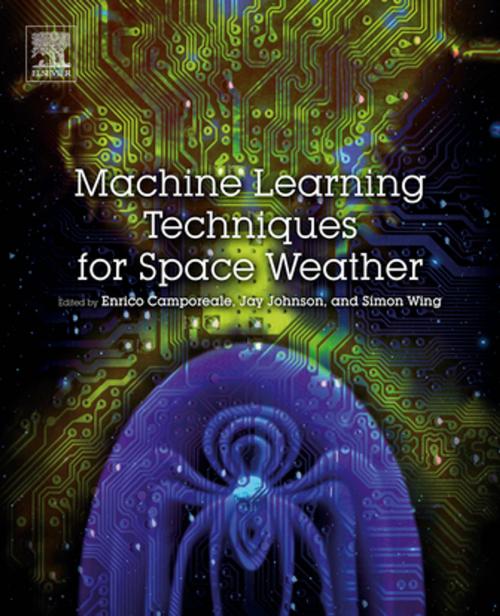Machine Learning Techniques for Space Weather
Nonfiction, Science & Nature, Science, Earth Sciences, Geophysics, Other Sciences, Applied Sciences| Author: | ISBN: | 9780128117897 | |
| Publisher: | Elsevier Science | Publication: | May 31, 2018 |
| Imprint: | Elsevier | Language: | English |
| Author: | |
| ISBN: | 9780128117897 |
| Publisher: | Elsevier Science |
| Publication: | May 31, 2018 |
| Imprint: | Elsevier |
| Language: | English |
Machine Learning Techniques for Space Weather provides a thorough and accessible presentation of machine learning techniques that can be employed by space weather professionals. Additionally, it presents an overview of real-world applications in space science to the machine learning community, offering a bridge between the fields. As this volume demonstrates, real advances in space weather can be gained using nontraditional approaches that take into account nonlinear and complex dynamics, including information theory, nonlinear auto-regression models, neural networks and clustering algorithms.
Offering practical techniques for translating the huge amount of information hidden in data into useful knowledge that allows for better prediction, this book is a unique and important resource for space physicists, space weather professionals and computer scientists in related fields.
- Collects many representative non-traditional approaches to space weather into a single volume
- Covers, in an accessible way, the mathematical background that is not often explained in detail for space scientists
- Includes free software in the form of simple MATLAB® scripts that allow for replication of results in the book, also familiarizing readers with algorithms
Machine Learning Techniques for Space Weather provides a thorough and accessible presentation of machine learning techniques that can be employed by space weather professionals. Additionally, it presents an overview of real-world applications in space science to the machine learning community, offering a bridge between the fields. As this volume demonstrates, real advances in space weather can be gained using nontraditional approaches that take into account nonlinear and complex dynamics, including information theory, nonlinear auto-regression models, neural networks and clustering algorithms.
Offering practical techniques for translating the huge amount of information hidden in data into useful knowledge that allows for better prediction, this book is a unique and important resource for space physicists, space weather professionals and computer scientists in related fields.
- Collects many representative non-traditional approaches to space weather into a single volume
- Covers, in an accessible way, the mathematical background that is not often explained in detail for space scientists
- Includes free software in the form of simple MATLAB® scripts that allow for replication of results in the book, also familiarizing readers with algorithms















